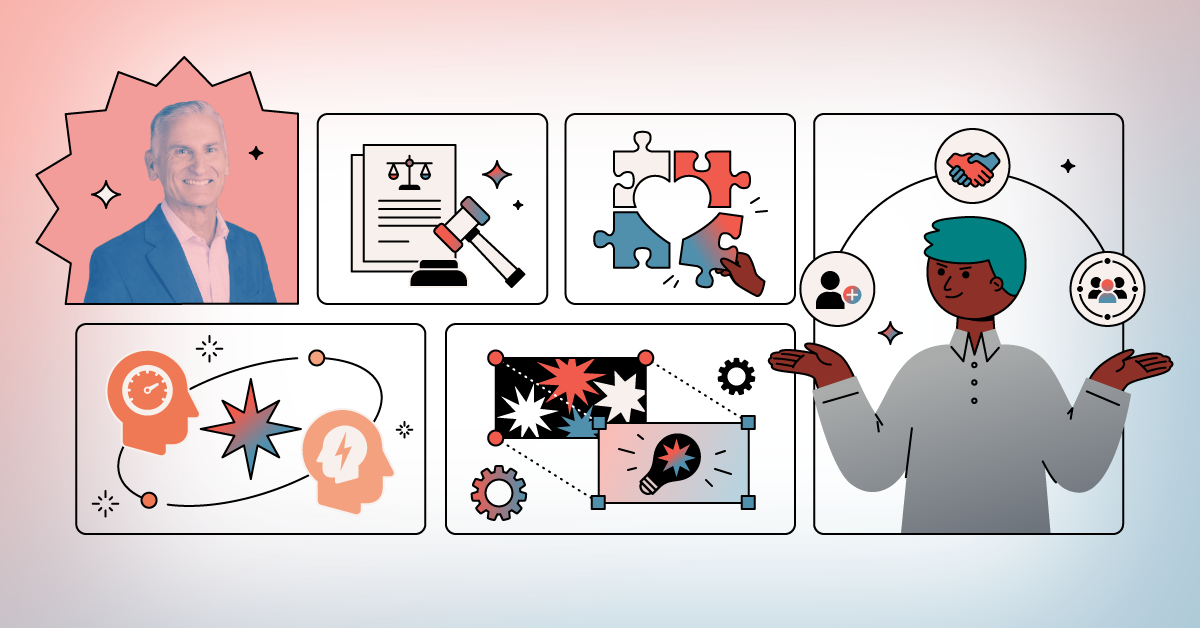
In all of my years in the corporate world, I’ve seen many leaders strive for success. That can look different depending on their roles and organizations, but throughout history, we have developed opinions of leaders in the government sector, business, and the not-for-profit sector based on three factors: their decisions, their performance, and their character.
But, can we accurately form an opinion of a leader based on these factors? The challenge in evaluating a leader’s decision-making is that the most important decisions are made in a context filled with volatility, uncertainty, complexity, and ambiguity. The most important decisions are best guesses based on good judgment rather than a comprehensive understanding of all factors that will lead to perfect decisions. Many of the factors are and will be unknown until reviewed against the backdrop of history.

As one of my entrepreneurial friends has often reminded me, “The key to my success has been that I have been right 51% of the time.”
Can we then judge on performance? This is also often inadequate. The primary factors leading to success or failure in any organization are, more often than not, outside of the executive’s sphere of influence. (I realize many will disagree with this opinion, but I have seen plenty of evidence academically and anecdotally over five decades that leads me to this conclusion.)
These factors may include significant demographic, technological, or regulatory trends. They may include geopolitical disruptions or macroeconomic changes. I’m always amused by political leaders who like to claim credit for job growth and avoid blame for contractions in the job market. I believe their influence in either direction is much less significant than claimed.
This leaves one method of judging a leader, especially an executive: the issue of character, or what translates practically into the leader’s conduct relative to ethics.
Let’s dive into what that means and what it looks like.
What Do We Mean By “Ethical”?
Ethics is a philosophical term that analyzes the behaviors of an individual against the accepted norms — it is an analysis of right behavior, which all aspirational societies describe as behaving in a manner that is balanced, considerate, and in most cases, legal.
How Does A Leader Behave “Ethically”?
Ethics can become abstract if not discussed in practice. Here are real ways leaders can pursue ethical behavior:
The Ethical Leader Seeks Balance
The ethical leader approaches decision-making with a sense of balance between the various stakeholders. They recognize there are multiple interests and competing priorities among these stakeholders and have a moral responsibility to take these into consideration.
In our organization, we have identified the major stakeholder groups as such:
- The end consumers or users of our products
- Our partners who deliver these products and add value to the end consumer
- All those who support our partners
- The communities in which we live and raise our families
I realize the phrase “stakeholder capitalism” has gained popularity in recent years, with some heralding it as a gentler, kinder form of capitalism and others decrying it as the next step toward political socialism and regulatory controls. I prefer not to engage in that debate because of what I consider thoughtful arguments and biased dogmas on both sides of the argument.
However, we should note that before Adam Smith wrote “The Wealth of Nations” (1776), the bellwether book on capitalism, he first wrote, “The Theory of Moral Sentiments: The Ethical, Philosophical and Psychological Underpinning of the Author’s Economic Theory” (1759). In his earlier book, he argued that without significant moral fiber in society based on a solid foundation of ethics, his concept of “the invisible hand of self-interest” in The Wealth of Nations would quickly become dysfunctional.
The Ethical Leader Is Well-Informed & Considerate
Taking a cue from Adam Smith, the ethical executive must make decisions and take actions with a well-informed consideration for those they lead. Achieving this requires profound self-awareness and self-regulation. The ethical leader must understand their strengths and weaknesses, must continually seek to learn more, to understand more deeply, and must be aware of the influence both implicit and explicit bias plays in their thinking.
They must recognize disruptive emotions and recognize when they begin to cloud their judgment or drive them toward inappropriate behaviors. They must have awareness and discipline in self-governance.
In addition, the ethical executive will find ways to keep the pulse of the emotional energies, concerns, and frustrations of those they lead. And they must learn how to manage their own intrinsic motivation, combining it with the aspirations of others to use this emotional energy as a force multiplier in pursuit of the group's shared vision and values.
The Ethical Leader Is Legally Compliant

Of course, the ethical leader should always be aware of and, for the most part, compliant with their legal responsibilities. Most decisions and actions must be well within the laws of the land for the ethical leader. However, this can become a major challenge for the ethical leader when the laws or regulations are in themselves unethical or immoral. Thankfully, for most of us, this will be the exception rather than the norm.
The Ethical Leader Is Dedicated To Solutions
Great leaders make wise decisions, get the right things done, and dedicate themselves in service to others. They realize it is their job to convert problems into opportunities. They inspire people to make commitments they wouldn’t otherwise make because they see the potential that is either unrecognized or too frightening to pursue without support. Great leaders serve a purpose that transcends self-interest or self-promotion.
The Ethical Leader Is Focused on Integrity
An ethical leader begins with the influence that comes from good character. They are clear about the values that reflect an ethical understanding of self-governance and interpersonal integrity. An ethical leader then demonstrates integrity in expertise. They don’t pretend or assume that they have all of the answers. They learn all they can and bring others into leadership roles who have expertise beyond their own, while never abdicating responsibility for the most important decisions.
Finally, an ethical leader understands the rules, the results, and the relationships that they are accountable for in their position. They demonstrate accountability to the organization or society that has entrusted authority and responsibility to them as their representative. They realize that positional leadership is always on loan and the day will come to give it back with humility and gratitude for the opportunity to serve.
You Can Be An Ethical Leader!
These principles of ethical leadership apply in every aspect of life. Please consider how you can change your world by growing your capacities of character, expertise, and positional leadership following the words of Shakespeare, “This above all; to thine own self be true, and it must follow as the night the day, thou canst then be false to any man.”




